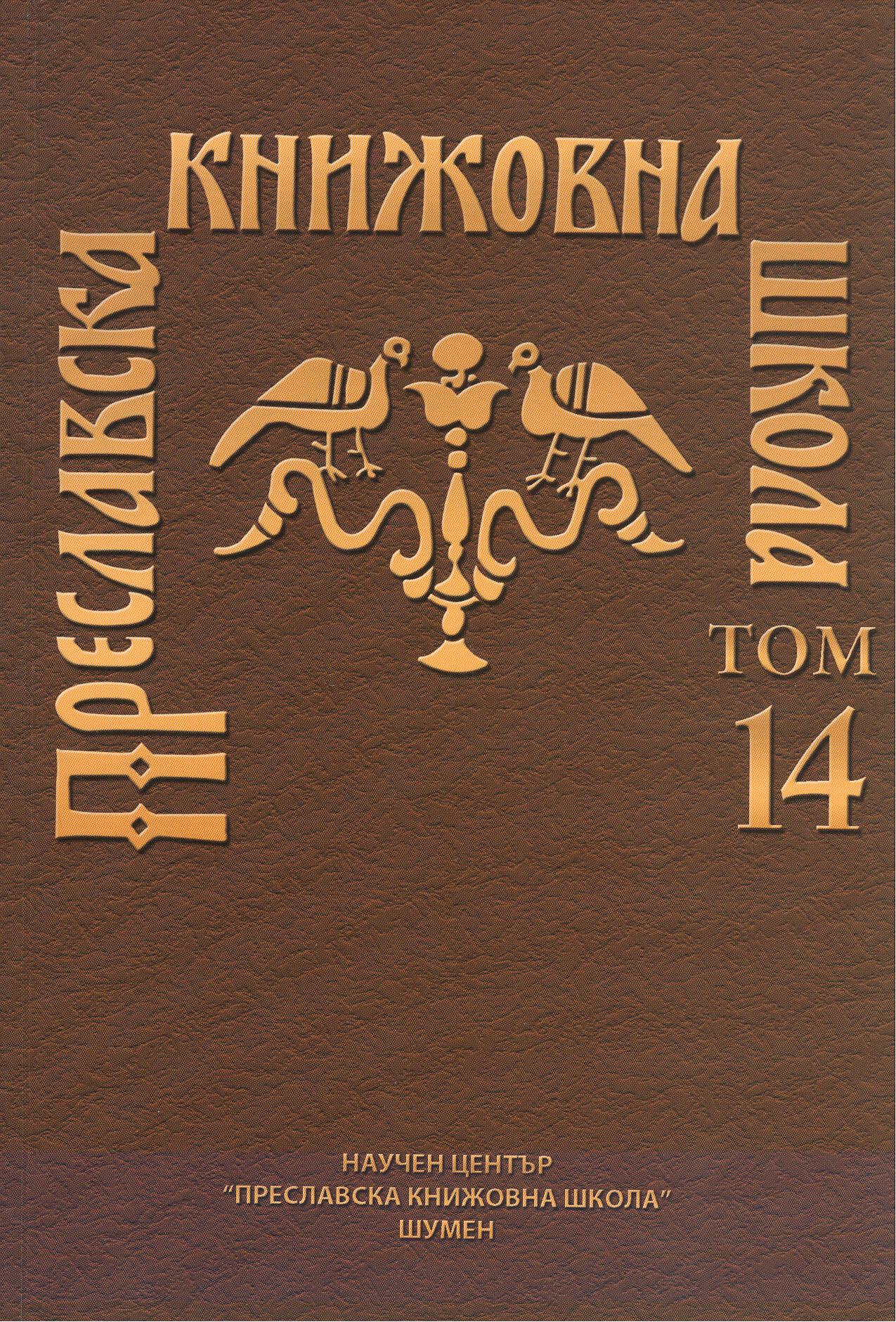СЛОЖНИТЕ СЪЩЕСТВИТЕЛНИ В СТАРОБЪЛГАРСКИЯ ПРЕВОД НА ОГЛАСИТЕЛНИТЕ СЛОВА НА СВЕТИ КИРИЛ ЕРУСАЛИМСКИ (ГИМ, СИН. 478)
COMPLEX NOUNS IN THE OLD BULGARIAN TRANSLATION OF ST. CYRIL OF JERUSALEM’S CATECHISM (GIM, Syn. 478)
Author(s): Gergana Georgieva, Nikolay NikolovSubject(s): Language studies, Language and Literature Studies, Theoretical Linguistics, Lexis, Historical Linguistics, Philology
Published by: Шуменски университет »Епископ Константин Преславски«
Keywords: Old Bulgarian language; Old Bulgarian translation; St. Cyril of Jerusalem’s Catechism; composite nouns
Summary/Abstract: The article analyzes 125 composite nouns, extracted from the Old Bulgarian translation of St. Cyril of Jerusalem’s Catechism of - 6 lexemes are for the concrete nouns (бракоодѣниѥ, виноградъ, врътоградъ, гланотѧжь, овощехранильница, трикровьникъ), 46 are designations of persons and 73 abstract concepts. There are primary ontological (бытиѥ, законъ, творениѥ, cf. пакыбытиѥ, законопрѣстѹпаниѥ, самотворениѥ), epistemic (мѫдрость, родъ, cf. цѣломѹдриѥ, прьвородиѥ) and ethical (благо, доброта, милость, мѣра, разѹмъ, cf. composite nouns with the first component благо- and добро-, милосрьдиѥ, лицемѣрьѥ, благоразѹмиѥ) terms detect in the structure of abstract noun composites. Complex nouns that are not fixed in the classic Old manuscripts are 78, for example благодэтельство, благодѣтиѥ, дльготрьпиѥ, добровольство, добровоньство, звѣздоберьць, звѣздословьць, земледѣля, зълобѳстриѥ. The compositum сѳноотьчьѥ is used in its negative theological meaning, rejecting the idea of Savelii’s heresy for monohypostasis of God’s personality. Particular composite bases of complex nouns are registered in Old Bulgarian canon as synonymous composite bases благочьст- and доброчьст- are fixed only in Codex Suprasliensis and Hylendar parchment sheets (a fragment of the Old Bulgarian translation of the catechism), and the synonymous derivatives добровоньство and добровониѥ, многобожиѥ and мъногобожьство are used in the Syn. 478 and Codex Suprasliensis. The main part of the composite nouns from Syn. 478 translate Greek composites, following the so-called word-by-word (and morpheme-by-morpheme within the lexeme) principle of translation. Examples are registered, in which old Bulgarian complex nouns translate Greek combination of words, for example бракоодѣниѥ wedding garment for Greek γάμου ἔνδυμα, тьштельсть blasphemy, vilification for Greek κενης ἀπάτης. On the other hand, compared with the Old Bulgarian canon a Greek complex lexemes is not translate with a combination of words and a complex noun, eg.: Greek ὀπωροφυλάκιον in the Sinai Psalter овощьноѥ хранилище, while Syn. 478 овощехранильница; Greek τεκνογονία in Codex Suprasliensis прижитиѥ чѧдъ while in Syn. 478 дѣтиродиѥ. In regard to the structure of compound words in the Syn. 478 both types are fixed: with a connective vowel -o/e- (eg. подобоврѣдиѥ, равьнодьниѥ, тъштельсть) and without a connecting vowel (братѹчадъ, дѣтиродиѥ, зълъштѫдь, лъжиисъвѣдѣтель, пакѳбѳтиѥ, полѹдьнь, тридьновие, трикровьникъ). In connection with the varying degree of repetition of the first component the so-called Composite group is registered, as the ones with a basis благо- are the most frequent (18 lexemes). Among the analyzed first components of complex nouns in Syn. 478 the bases басно-, брако-, главо-, дѣти-, зълъ-, зѣло-, кръваво-, овоште-, пророко-, пѹстыне-, равьно-, свѣто-, свѧто-, сладо-, срамо-, срѣдо-, тризно- and чьсто- are not fixed at all in composite lexemes in the classic Old Bulgarian manuscripts. The complex words with first component басно-, добро-, кръваво-, подобо- and само- are characteristic of practice Preslav writers’ because composites with those first components are found in Codex Suprasliensis, Izbornik of 1073, John Exarch’s Theology, Antiochus’ Pandects and Nikons’ Pandects. Syntactic-semantic relations between the foundations of the composite nouns in Syn. 478 are most often based on subordinating conjunction – attribute, object or adverbial relation between the components. In this respect the mutational and transpositional word-formation categories and types composite are differentiated in the studied manuscript. The observations allow us to conclude that the lexical layer of composite nouns in the Old Bulgarian translation of the Catechism reflects the norm characteristic of the Preslav scholars – in the use of lexemes (and their components) as dictionary units, as well as in the construction of composite bases according to established word-formation patterns in the Old Bulgarian language.
Journal: Преславска книжовна школа
- Issue Year: 2014
- Issue No: 14
- Page Range: 91-121
- Page Count: 31
- Language: Bulgarian

